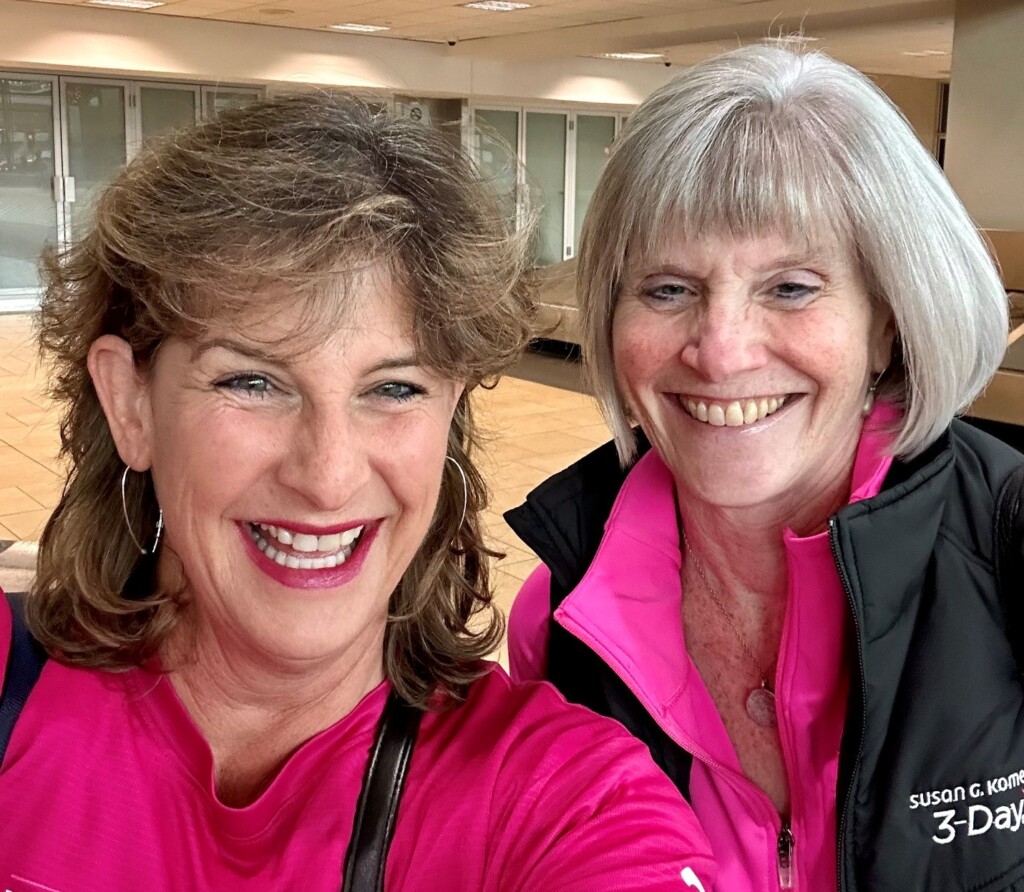Beth B.: My Story— 4 Words Plus 1
“A lot can happen in three days” has been running on a continuous loop through my head over this past week. May 12th was my first Mother’s Day without my mom. May 13th was the day phase 2 of treatment began. May 14th was the one-year anniversary of John’s death. It was an incredibly difficult three days for me, exacerbated by radiation burns in my throat which have made it very difficult to swallow and to eat. Thankfully, that has started to ease.
I never wanted to become the story, but when I was originally diagnosed in 2011, I let myself become the story. I thought it was a way to show people what it’s like to have cancer, to live with cancer, and to live beyond a cancer diagnosis. It also lit a fire in me; a fire to fight, survive, and pay it forward. Every. Single. Day. Publicly sharing your story is daunting for many people [but] it is empowering for me. It puts cancer in its place. Everyone [with cancer] has a story [and] if telling my story helps just one person, then it’s worth it. It is all worth it. To anyone facing a cancer diagnosis, tell your story; tell one person, tell a friend, a stranger, tell me, tell ten people, tell 10,000 people… just tell it. Telling your story prevents cancer from being something sacred or secret and puts the power back in your hands. It also introduces you to all us survivors and thrivers. We are here and we can’t wait to meet you.
My original story began on November 4th, 2011, with 4 words, “You have breast cancer.”
“You have a lump.”
“We found something suspicious.”
“You have breast cancer.”
“Lumpectomy, mastectomy, chemo, reconstruction.”
“You are a survivor.”
For the last 12+ years, I have lived my life as a survivor. I went to all my follow-up appointments, followed all the rules, I walked and walked and walked, raised money for the cause, [and] lived my life out loud. But there was always a sword hanging over my head because breast cancer is never truly gone. It hides. It lurks. It may stay hidden, [or] it may burst back into sight. It is a dirty, sneaky beast.
On April 13, 2024, my story became 4 words plus 1, “You have METASTATIC breast cancer.”
“There is no cure.”
“There are treatment options.”
“There are clinical trials.”
“I will fight this.”
“We will fight this.”
“I am a thriver.”
There are an estimated 168,000 women in the US living with metastatic breast cancer (MBC) and the 5-year survival rate continues to improve, thanks to advancements in treatments that help people like me live longer, and with a better quality of life. Kisquali, the drug I started taking last week, was approved by the FDA in 2018. To anyone who questions why I walk, why I have walked since 1997, why I will always walk (including this November in San Diego), why together we have raised close to $250,000, why Susan G. Komen 3-Day® participants have raised close to $1 billion—this is why. The money we raise goes to fund research [which leads] to clinical trials [which leads] to better treatment options. While there currently is no cure for MBC, people are living longer, better lives with the current drug options.
I’m sure you’re asking where I am now.
On May 6th, I completed 10 rounds of radiation to shrink the tumors on my spine. Memorial Sloan Kettering completed blood work which included genetic mapping of my tumors and determined I have no genetic mutations which means I do not qualify for clinical trials. My treatment was transferred up to Albany to my original oncologist and his team. On May 13th, I began phase 2 of treatment which consists of hormone therapy shots of Fulvestrant every three weeks. My current pathology is identical to my original pathology which means this is treated as breast cancer even though it is in my spine, liver and lymph nodes. Kisquali is an oral medication that blocks certain enzymes that feed my cancer which I started this last week. I take three pills a day for 21 days then I get a week off and start all over again. This will continue for the rest of my life or until another protocol is developed. I will also get Prolia injections every three months to strengthen my bones which can be impacted by these medications. This treatment protocol will be so much easier than chemo and with far fewer appointments.
With this diagnosis, I will continue to live my life out loud. I do this for those who don’t want to, or just can’t tell their stories. This diagnosis is so much harder, but I want and need people to know I’m here if they need me. I want people to understand what MBC is and what it means, to see us Thrivers living with this chronic, not terminal, disease; and we will NOT back down.

